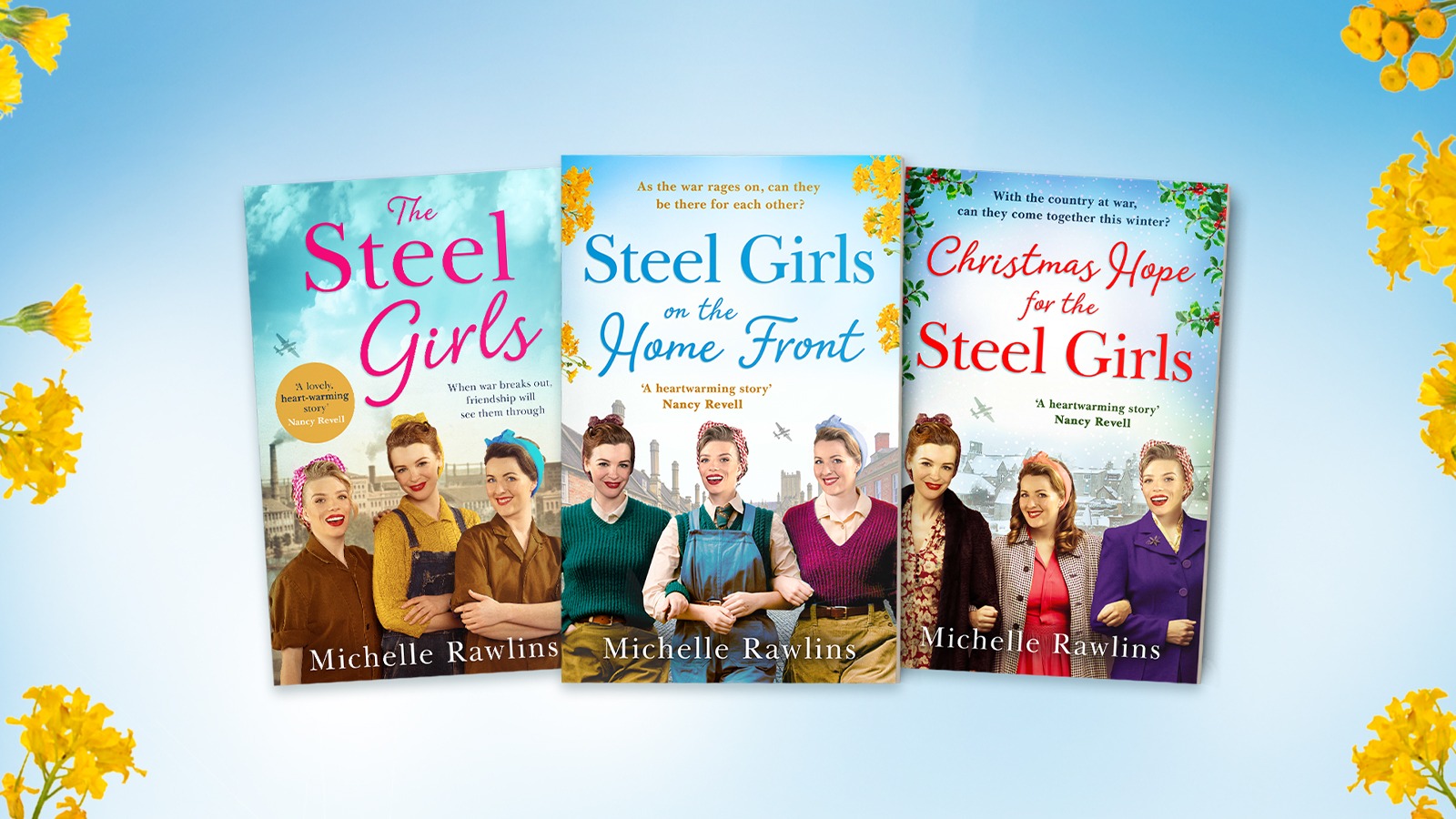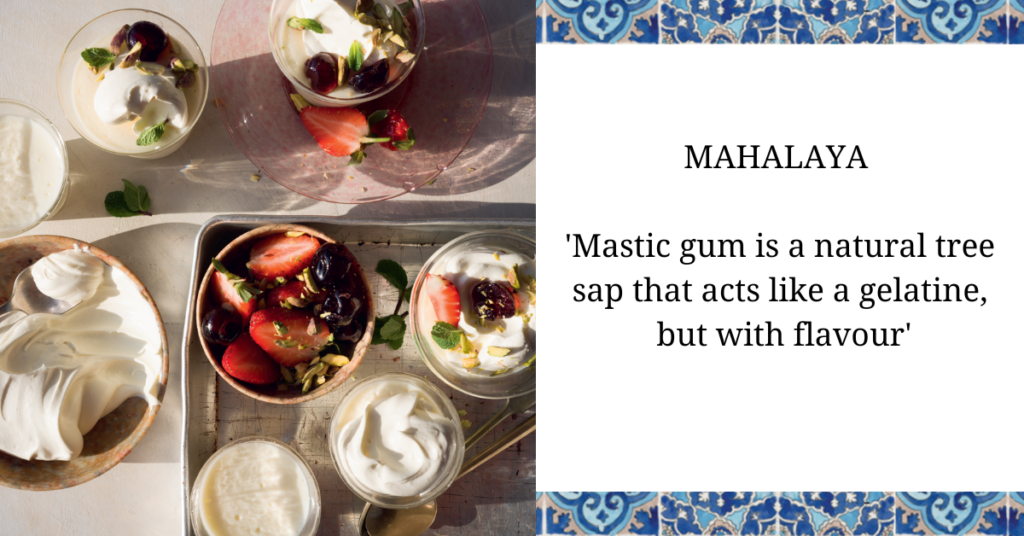Tomorrow we publish Steel Girls on the Home Front, the third instalment in Michelle Rawlins’ epic wartime saga series. To mark the occasion, Michelle joins us to reflect on her inspiration behind these brilliant books, as well as shine a light on the true-life story of Sheffield’s steel girls.
I started The Steel Girls series after spending two years researching the true-life stories of the women who worked in the factories that lined the River Don during World War Two. Their tales of hardship, strength and resilience left me humbled and in complete admiration of what this tremendous generation endured.
Many were mums or young girls, with no experience of what it was like to be employed in one of the ginormous windowless factories, which were described on more than one occasion as entering ‘hell on earth’. The deafening, ear splitting cacophony of noise mixed with the perilously dangerous, but accepted working conditions, alongside the relentless and exhaustingly long shifts, was a huge culture shock for so many of the women who walked through those factory doors for the first time.
Those who had young children had no choice but to hand their precious sons and daughters over to grandparents or leave them in the care of older siblings, some of them only just out of school themselves, but were expected to grow up fast and also do their bit to help.
What struck me in the course of my research, though, was how little resistance was offered to this new arduous, strangely unfamiliar, and frequently quite terrifying way of life. ‘We were just doing what was needed,’ was an all-too- common answer when I asked the women I had the privilege of talking to why they so eagerly took on the somewhat risky roles they volunteered for. ‘We had no choice. It was what was needed to keep the factories going.’ This is true, the foundries desperately needed workers, with so many of the opposite sex signing up to begin a ‘new adventure’. It soon became clear to me that this band of formidable, proud and hardworking Yorkshire women were not going to just stand by and let Hitler and his troops reap havoc across Europe and beyond without them doing what they could to aid their husbands, brothers, sons and uncles, who were off fighting someone else’s war.
Over and over again, I was left in complete awe of how much the women of Sheffield sacrificed, day in and day out, for six long years. It’s hard for most of us to comprehend now what a difficult and seemingly never-ending length of time this was. As well as working night and day as crane drivers, turners, making camouflage netting or working next to a red hot and at times fatal Bessemer Converter, they were also terrified by the very realistic fear they may never see their loved ones ever again.
One lady, Kathleen Roberts, told me whenever a shooting star was seen going over a factory, it was a sign another soldier had fallen and a telegram bearing the bad news would be delivered soon afterwards. To live with that level of sheer terror, let alone cope with the ominous air raid sirens that indicated the Luftwaffe could be on their way, is truly unimaginable. But this is the harsh and constant reality which thousands of women lived with across Sheffield. It wasn’t all doom and gloom though. The one thing that struck a chord with me while talking to the women and their families was the way in which they counteracted the harshness life had thrown at them. They created unbreakable bonds with their new female fellow workmates and a camaraderie which even Hitler himself couldn’t break. In a determined bid to ‘keep up morale’ our feisty factory sisters focussed on safeguarding a warm community spirit to keep them all going when times got hard. Friendships were created in the most unlikely of circumstances, often amongst women who would never normally mix; lipsticks were snapped in half and divided between colleagues, and a single wedding dress could be worn a dozen times to ensure a Sheffield bride didn’t walk down the aisle without looking her absolute best. It really was the era of sharing what you had with your neighbour and never letting someone in need go without.
Of course, it would be easy to romanticise this period, or hale it as ‘the good old days’, but the reality is it wasn’t that either. It was simply a case of facing head-on the atrocities life was dealing and getting on with it as best you could. Some had it easier than others but no matter what, all these women woke up in September 1939 to a new life and somehow managed to take it in their stride, but they really didn’t have much choice. With no savings to fall back on to tide them over, or a welfare state to lighten the load, it was a case of ‘cracking on’ and doing what was needed.
In 2009, Kathleen Roberts rang the Sheffield Star and asked why she and others like her, who had sacrificed so much of their lives had never been thanked, after watching a TV show on the Land Girls. What started as a frus- trated phone call, developed into a campaign by the local paper to ensure the women of the city who had worked day and night in the steel works, were finally recognised. Kathleen, alongside Kit Sollitt, Dorothy Slingsby and Ruby Gascoigne, representing this whole generation of women, were whisked down to London to be personally thanked by the then Prime Minister, Gordon Brown. Afterwards a grassroots campaign was launched by the Sheffield Star to fundraise for a statue representing the female steelworkers to be commissioned and erected in Barker’s Pool, in the city centre, directly outside the dance they would often visit on a Saturday, to escape the drudgery of their lives.
In June 2016, the larger-than-life bronze statue, paid for entirely by donations from the people of Sheffield, was unveiled to the sheer and rapturous delight of the still surviving Women of Steel, their contribution to the war effort now eternally immortalised.
Although the characters in this book are entirely fictional, their experiences a result of my creative imagination having a bit of fun with itself, the truth is every page is based on the interviews I conducted, the factual books I’ve read from the period and the ongoing research I’m still undertaking. I hope within my books, I can also help keep this generation’s memory alive. I interviewed women who flew up crane ladders, others who were scared witless and many who remember only too clearly what it was like to live in absolute poverty, the tallyman a regular visitor to their door. So, despite the poetic creation of Betty, Nancy and Patty, I can envisage their real live counterparts, hear their voices and recall their experiences – the reality of it is, I simply couldn’t make the raw bones of some of these stories up. Only after hearing first-hand how terrifying it was to be hauled up to the dizzy heights of the factory heavens in a crane cab or listen to the raw heartbreak of not knowing if your husband was dead or alive in a faraway country, could I put pen to paper and serve our real Women of Steel the justice they rightfully deserve.
I truly hope, as a Sheffielder (well just about – I’ve been here 26 years) I have served the women of this hard-working industrious city well and you have enjoyed reading this book as much as I have writing it.
Discover The Steel Girls series now! Available here in paperback, eBook and audio.





